Last Quarter (Zodiac Series): Scorpio's generation
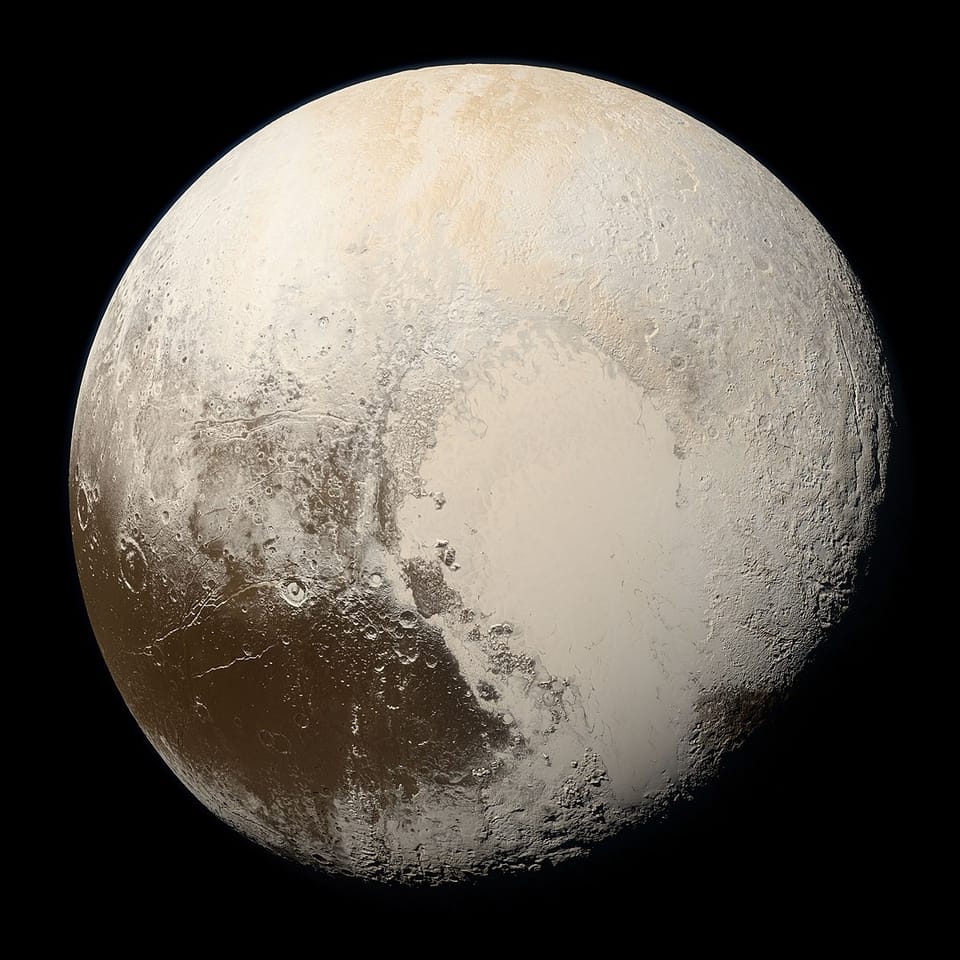
Hello. It's Friday, and it's chilly, and the trees are nearly bare, and the Pleiades are up all night.
I write today within an ongoing emotional state that is tenuous, periodically withdrawn, often pained. This is the feeling of grief in stasis. The 6th of this month marked one year since I learned of my pending miscarriage, and from then until the 24th of this month I have been marking the anniversary of that first pregnancy loss, which happened both very slowly and very quickly, depending on when I consider the actual moment of farewell to have discretely taken place. Having had some good things happen beyond the realm of fertility over the past year — yes, even despite my unemployment amid the acceleration of the great polycrisis — and having devoted myself more than ever to the maintenance and growth of my rites, I know my grief has healed more than it could have, because my heart is given regular reminders that I am not living in "the worst possible timeline" and in any case even if I were I'm at least seizing more and more opportunities to experience the fullest life that I can under such circumstances. Nevertheless, with now having lost more children than I've ever even intended to have, it isn't possible to look back at what happened last November and think, "That was terribly painful, but now I can look at the other new life before me and find enough joy that the pain fades." I know that for some people the pain never even fades if they do have living children, and I can understand why, but from my perspective the grief for the individual losses has been intrinsically bound up with fear for having lost my only chances.
Thus the grief has not transmuted very far; even one year on I can barely think of what rituals are needed to mark the occasion. I sit with the memories and the hollowness and the drifting through mist. The closest commemorative activities I have managed are to take more intentional care of my body, reverencing it, and to seize on an instinct and watch the sky on Tuesday night when a fresh geomagnetic storm provoked spectacular aurora activity. While I was pregnant last year, as described before I developed a personal association between the Northern Lights that shone for those precious weeks — and the similar hallucinatory bedtime flickers I also perceived due to my boiling hormones. It had felt as if through the thin veil I was simultaneously receiving some communication from the dancing ancestors and the shadow child inside me. Now I suppose that first lost child might have been greeting me amid this anniversary, for the aurora that night was so very, very beautifully bright.
That's all I will write on the matter today. I have wanted to come back to my zodiac series, and here in Scorpio season there is one topic I've felt compelled to share some thoughts about. It's still somewhat personal because it concerns a great, long-running challenge I've encountered as someone born under Pluto in Scorpio; but this is also a generational matter because nearly everyone considered a "Millennial" was born with the same Pluto placement. And sometimes when those of us in that generational "cohort" speak together about our experiences of a world falling apart and of our elders abandoning us, all I can think is that the story of the stars has some real power here. My stance on the value of astrology remains that it's a storytelling tool, and so for those of us feeling that collective betrayal, precarity, and almost viciously dark anger: here is a narrative that helps me make meaning of our particular collapsing reality.
Pluto & Scorpio: a history
Pluto is not an astronomical planet, but for astrological purposes it is; it's a heavenly body that passes along the plane of the ecliptic and thus moves through the zodiac signs. Consider, however, that this choice by astrologers to "keep" Pluto does not derive from some ancient Babylonian or Vedic custom. Like Uranus and Neptune, Pluto was only added to modern astrological considerations once it was discovered by modern science. Prior to the creation of telescopes that let us see as far as where those celestial objects orbit, the classical planets ended at Saturn, last of those visible with the naked eye.[1] But a lot of astrologers are nothing if not adaptive; once it became clear there were more things beyond Saturn, the scope of perceived planetary influence expanded. After all, they argued and continue to argue, if that influence were absolute you would not need to see the planet in order for its effects to apply.
So when Clyde W. Tombaugh identified Pluto in the Kuiper belt and the scientific community initially framed this object as the ninth planet, Pluto joined the astrological planets. Then, even though Pluto's planetary status was downgraded for most people in 2006[2], there was no significant reason for astrologers to stop paying attention to Pluto; smaller objects like Ceres are also still taken into account, and both the Sun and the Moon are crucial "planets" in astrology despite being a star and a satellite.
Thus Pluto is here to stay, and while I can't speak to every modern astrological tradition, in the Babylonian-derived "Western" system it's now the leading convention to identify Pluto as the planetary ruler of the sign Scorpio. Prior to that mapping, Scorpio's ruler was Mars, meaning that for many centuries Mars ruled two signs just like Mercury and Venus still do. Indeed, as you might deduce from the planets originally "capping out" at Saturn, astrology used to have more duplicated planetary rulerships than it does now. The old system used to more or less be as follows:
♈︎ Aries - ♂ Mars
♉︎ Taurus - ♀ Venus
♊︎ Gemini - ☿ Mercury
♋︎ Cancer - ☽ Moon
♌︎ Leo - ☉ Sun
♍︎ Virgo - ☿ Mercury
♎︎ Libra - ♀ Venus
♏︎ Scorpio - ♂ Mars
♐︎ Sagittarius - ♃ Jupiter
♑︎ Capricorn - ♄ Saturn
♒︎ Aquarius - ♄ Saturn
♓︎ Pisces - ♃ Jupiter
Whereas the newer system goes:
♈︎ Aries - ♂ Mars
♉︎ Taurus - ♀ Venus
♊︎ Gemini - ☿ Mercury
♋︎ Cancer - ☽ Moon
♌︎ Leo - ☉ Sun
♍︎ Virgo - ☿ Mercury
♎︎ Libra - ♀ Venus
♏︎ Scorpio - ♇ Pluto[3]
♐︎ Sagittarius - ♃ Jupiter
♑︎ Capricorn - ♄ Saturn
♒︎ Aquarius - ⛢ Uranus
♓︎ Pisces - ♆ Neptune
I have been led to understand that which system to use is still debated by astrologers, insofar as the counterpoint to "you don't have to see a planet for it to exert an influence" is that nevertheless, the signs' characteristics have been established for so long that their planetary rulers must have still been the ones that the Babylonians originally observed. Since I favor my storytelling model rather than insisting on literal, objective, measurable planetary influence, I don't have a truly strong opinion either way on what makes logical sense. But I think that more planetary rulers allows for greater nuance and more complex stories, so on that basis alone I use the new system.
Within that context, it is Pluto's association with death, wealth, and primordial chthonic forces that makes Scorpio all but notoriously regarded as the sign of sex, death, and taxes, i.e. estates. On someone's natal chart, any planetary placement within Scorpio is likely to raise eyebrows because this sign may carry the most fearful or salacious stereotypes. I think the appropriate way to deal with this is not to try claiming, "Oh, Scorpio isn't really about all of that." Rather, we should become less afraid of what the sign represents. Sex, death, and taxes are all vital aspects of life. Any placement in Scorpio offers a necessary opportunity to reflect on those energies.
Thus I certainly don't think "a Scorpio," i.e. a person with Scorpio Sun, should be fed a narrative of their own dangers. Likewise many other planetary placements in Scorpio are as likely to be auspicious or inauspicious as placements in other signs could be.
But what about when Pluto comes home?
A troubled inheritance
Pluto moves so slowly relative to the Earth that it usually takes more than a dozen years for Pluto to pass from one sign to the next. It also can go retrograde for long enough that you will typically have a special time period as Pluto hangs on the cusp of one sign or the next, wherein Pluto will shift erratically between the two signs before definitively moving on to its next placement. So technically, Pluto entered Scorpio in 1983, but there are a block of dates in 1984 where Pluto was back in Libra before really settling in Scorpio for a long time. Then in 1995 Pluto temporarily shifted into Sagittarius but then fell back into Scorpio before truly leaving later that year.
Thus, in addition to first couple years' worth of so-called Millennials born in 1981-82 and the last year's worth in 1996, there are a scattering of more mid-range Millennials who also have Pluto in Libra or Pluto in Sagittarius. All of that said, though, the vast majority of Millennials have Pluto in Scorpio.
Right here is where I should offer the disclaimer that generational cohort mapping is often about as symbolic as astrology is, and I usually find it more boring. I would not dispute that the year someone is born does have some material correlation with circumstances that person is more likely to find themselves in and personality traits they are more likely to develop as a result; but the fifteen-year windows are fundamentally arbitrary and in my opinion too long. I have much more in common with other people who were born in the mid to late 80s than with people who were born in the mid 90s.
Nevertheless, I know that some fellow Millennials are used to thinking of themselves as such, and I'll sometimes grudgingly do the same. And it's our general overlap with Pluto in Scorpio that fascinates and unsettles me most, so here we are.
I have Scorpio nowhere else in my natal chart, but when I first began studying astrology in my youth I remember being rather intrigued to find a planet besides the Sun[4] in its "home" sign. Looking up a description in my first in-depth astrology reference (Ada Aubin and June Rifkin's The Complete Book of Astrology, 1998) I read fairly ominous sentences like these:
In the beginning of this transit there was a tension and a falling apart. Everything turned to dust, everything disintegrated. Talent was questioned and the only way to survive was to make sure you were good at what you were doing and not taking it for granted. You had to work hard and hone your craft, talent, or profession, because if you didn't master it, you were going to lose it. Those born with Pluto in Scorpio are going to carry, in their subconscious, the need to clean up. Not just cleaning up the planet, but cleaning up the inner self.
At the time I didn't know much about things that had happened in 1983-84, "the beginning of this transit." And to be fair, thinking back through history now, I'm not sure that you could call those years as significant as, say, 1980 with the election of Reagan or 1991 with the breakdown of the Soviet Union. But certain key phrases have particularly stuck with me: tension and falling apart, dust, disintegration. So did the implications of employment scarcity and the explicit mention of the environmental conditions that were already at the forefront of many minds when this book was published.
Here is my own interpretation of what happened for those of us with Pluto in Scorpio, at least living in the Global North[5]: the falling apart was not a thing that happened in the past, but a thing that we would have to carry with us through our lifetimes. Unlike those who followed us, who by and large were born into already crumbling circumstances, and unlike those born in the late 60s through 70s, who were born just early enough to still find their way according to the last imitations of the capitalist ideal — people my age experienced a peculiar thing, not unique in history but certainly distinctive for the era in which we now find ourselves. In childhood we were promised a prosperity akin to the post-war economy of half a century prior, and said prosperity was true for lots of us in those early years, accompanied by optimism about new technology like the World Wide Web or about initiatives to "save the planet." Our real inheritance, though, was far more troubled: the War on Terror, evangelical political dominance, the 2008 financial crisis and its long-term fallout, the development of horrific online reality tunnels... all against the backdrop of the planet simply burning, and burning, and burning.
Our generational inheritance is death and estate planning writ large as it's fallen to us to hospice modernity and too many better things alongside it.
Apocalyptic elderhood
For people in my approximate age group, we are not yet elders, and in many cases we would maybe not even qualify as middle-aged. But leaving aside the fact that those of us in the queer/trans community are rapidly approaching elderhood (if not already in it) due to phenomena that have systemically limited our average lifespans in the past[6] — broadly, our collective elderhood is still emerging sooner than we might expect. For one thing, as ecological, economic, and societal breakdown accelerates it's plausible that the people who are currently much older than us will not live as long as they and we once expected, vulnerable to extreme heat, food shortages, and failures in healthcare; we ourselves may die younger than promised, even if our threads have a little ways to go. For another thing, although there have been Earth-heroes in earlier generations and although the modern youth climate movement postdates us, we are the ones increasingly needing to manage the world while predecessors hand off the reins.
In both these respects, we can offer much if we learn whatever wisdom is to be found from our inheritance of death and collapse. We may yet have a chance to productively shepherd the US empire to its end; we also can call upon our memories of families unhoused by foreclosure, or of basic needs going unmet due to stagnant wages or perpetual layoffs, and hold sacred the rights of shelter, food, water, joy, and work we do because it makes us proud rather than because we have no choice — returning these rights to everyone as intrinsic freedoms. We can remember what never went well about the internet and let it die, and we can remember what did go well and labor to bring those qualities back.
And we can remember the dream we were promised of a green, Earth-loving future. If it's too late to achieve that dream for many more generations, so be it, but the memory still means something. What was taken from us is still something we can gift on to our descendants. Perhaps the lesson of Pluto in Scorpio is above all to hold the legacy of Ozymandias — and yet to not despair but remember that, no matter how unsteadily, Pluto always moves on as the spheres keep turning.
All keeps turning.
[1] And even with a telescope, Pluto lies so far from Earth that light from Pluto takes over five hours to reach us.
[2] Just to split hairs, Pluto is now classified as a "dwarf planet," which many astronomers consider ontologically distinct from a regular planet. But if you really still wish for Pluto to "be" a planet, there are also interpretations of the new classification such that it's a planet that needs a clarifying adjective about its size. The issue boils down partly to semantics and partly to the fact that Eris, a dwarf planet with a wider and much more eccentric orbit than Pluto, is itself bigger than Pluto; so plainly Pluto and Eris are of a kind, the question just being what kind.
[3] I have used my less-preferred symbol for Pluto here, but there is insufficient Unicode support for the symbol I like.
[4] I'm a Leo.
[5] I think that different interpretations are probably warranted for people in populations that have always been more on the short end of capitalism's stick; they have had fewer illusions of prosperity, even if they still stand to lose the most under present ecological conditions. Perhaps for the Global South and for certain minority groups in the Global North it would make more sense to say that ever since those born in that 1983 to 1995 bracket came of age, so around 9/11 and its fallout, the gloves have had to come off as the mission of the US Empire has become increasingly genocidal and ecocidal.
[6] Specifically the peak of the AIDS crisis, but also structurally-affected homicide and suicide rates.
Thank you for reading, and I apologize again for the interruption that happened last week. I'm glad I was able to manage this.
Next week I'll be writing for paid subscribers only, with some suggestions for how to create your own grimoire if that interests you, based on my experience doing so several years ago. After that, I will try to have a public post about garden winterizing, but I have a commitment for that long weekend, which will mean that my ability to write will hinge on how much free time I have for the preceding few days.
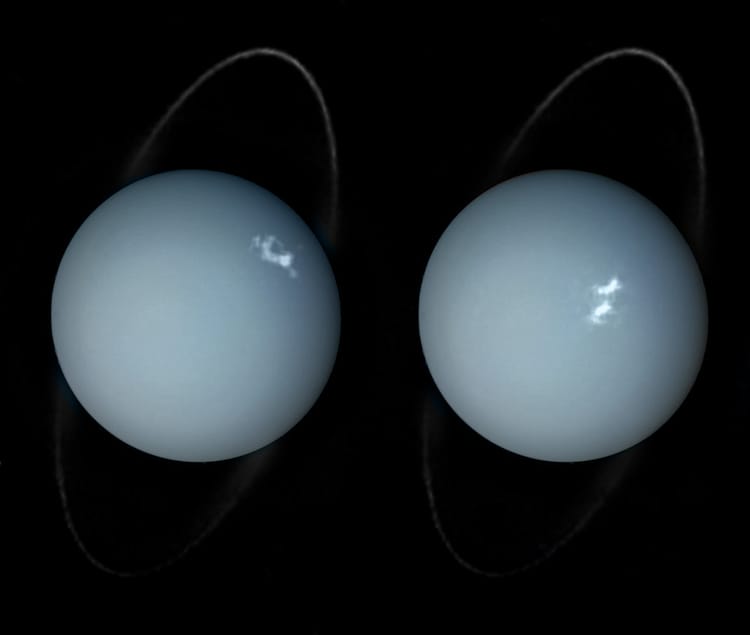
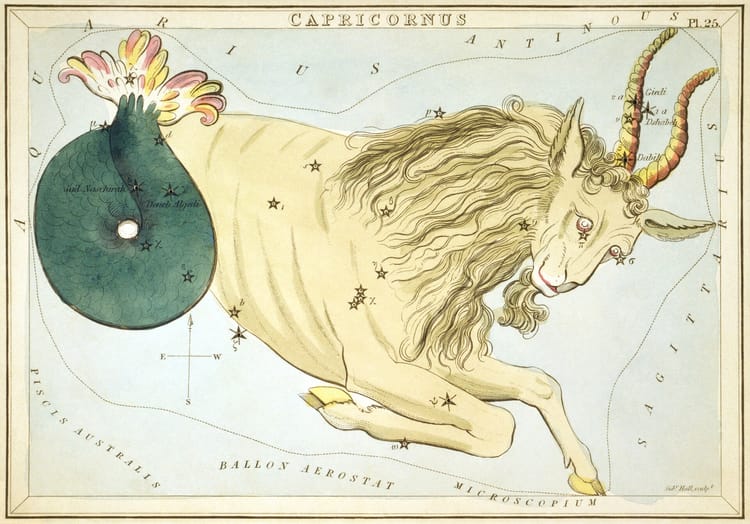
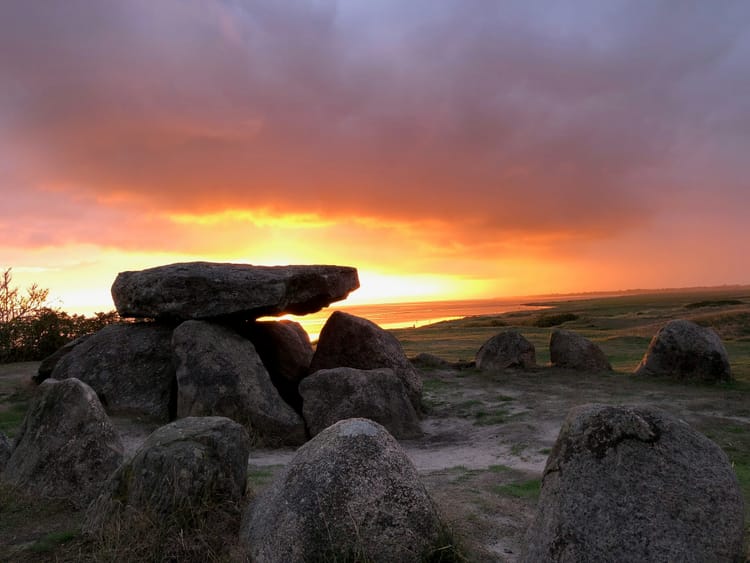
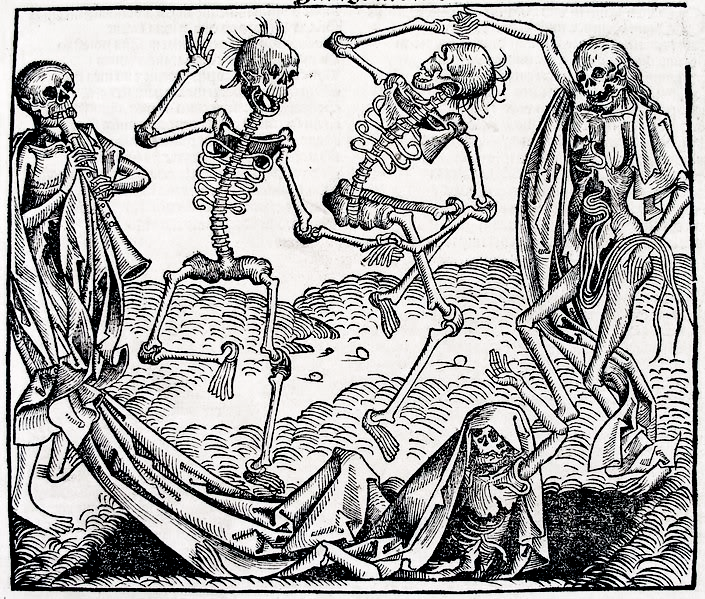

Member discussion